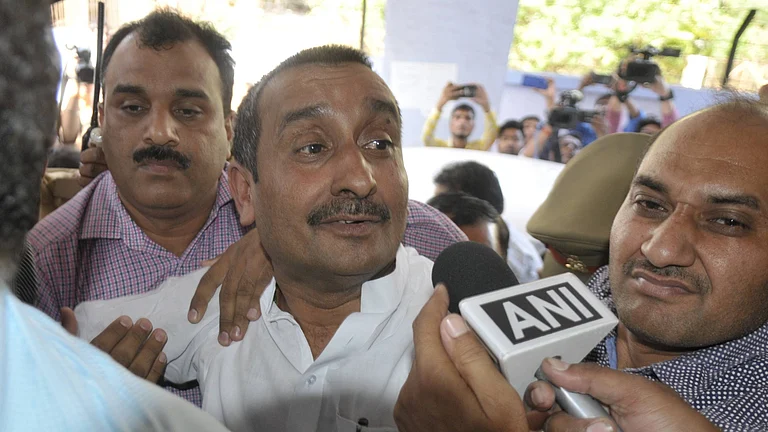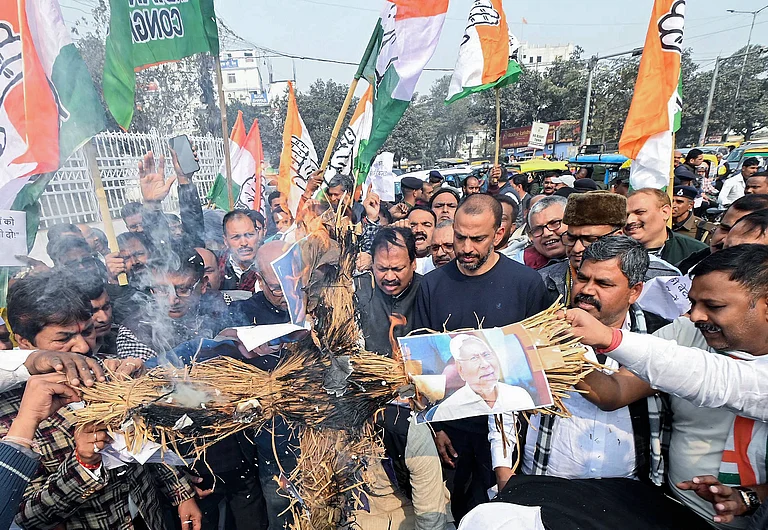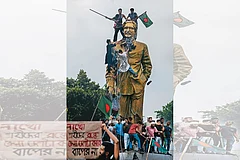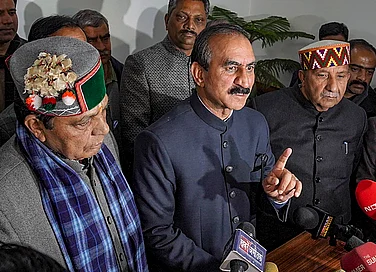The mango tree with the bodies of two minor girls hanging from its branches has continued to haunt me ever since it was first reported. It was a rape case. It happened in 2014 in Katra Sadatganj in UP’s Budaun district. The two cousins had gone to relieve themselves in the morning. Their bodies had been hung from the branches of trees just 500 metres away from their house.
It makes you perpetually angry and afraid. That’s what a rape story does to you.
In my lifetime, I have absorbed so many rape stories, that each time a rape case is reported, the memory of all the rape cases with their gory details resurface. And then, you wonder about the hundreds, maybe thousands, that go unreported.
You feel violated as a woman.
My first encounter with a rape story was in 1999 in Patna, Bihar, when my college senior’s semi-naked body was found in a car in Patna. She was 22 years old and was a student at Patna Women’s College. She had been crowned the ‘Queen’ on farewell night in school, which was also my school.
She had been raped. By many men, it was said. Semen was found on her body. In Patna, there were candlelit marches to protest the non-action by the police.
The case remains unsolved till date. The accused, Sadhu Yadav—brother of Rabri Devi, former Bihar Chief Minister and wife of Lalu Prasad Yadav, the Rashtriya Janata Dal supremo—refused the DNA test. The CBI closed the case, saying it was a suicide, even though medical examination later revealed that the semen on the clothes of the bodies of the victim and her male friend, belonged to more than one person.
In the Budaun case too, the CBI had said it was a suicide.
We are again witnessing protests across the country over a brutal rape and murder of a 31-year-old postgraduate trainee woman doctor at the state-run R G Kar Medical College and Hospital in Kolkata earlier this month.
What does it mean for women? It is reliving every rape case one has come to know of.
It was in Hathras that I began to comprehend how stories of rape get distorted and circulated. I was there to cover the rape and murder of a young Dalit girl in 2020.
On my first day to report on the case, two local reporters asked me if I knew the truth. They took me to the side and told me it was a property case and the girl was having an affair with one of the accused. On the way to the village, a local Thakur man stopped me and volunteered to tell me that the girl was in a relationship. There were Thakur mahapanchayats that were called. Vote-bank politics reared its ugly head.
A girl had been killed, her tongue had been mutilated and her body broken and bruised. But even in her death, which was undeserved and showed the failure of the state, she was being judged. When will we see the horrors of what rape stories do to us? Why must women be broken so badly?
Such cases are termed “unfortunate”, and compensation is announced. Justice is another matter. What constitutes justice is a question that has no clear answers.
There will be fast-track courts and death punishments and judgements and then, there will be another rape story and we will keep wondering why women are still unsafe. Is it because rape exposes many things about class and caste? Is it because being a woman means you belong to the lowest caste?
A few years ago, I had visited Phoolan Devi’s village to see what happens when a woman who was raped decides to avenge herself.
In the next issue of Outlook, we will remember the stories of rapes reported widely and those that only became crime briefs because they happened to those who were poor and lower caste communities and lived far away from the cities where protests like the ones we are witnessing now are difficult to mobilise.
Remembering is important. Because we forget too soon.
I am a woman and I remember. And I must remind everyone that these stories happened and they continue to.
MORE FROM THIS ISSUE
The mango tree returns to me each time I hear of a rape. That’s not okay.































